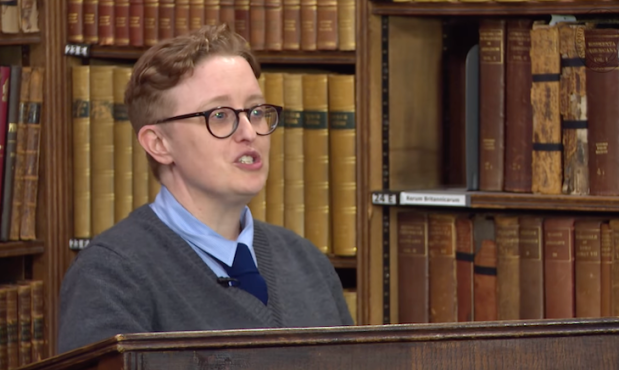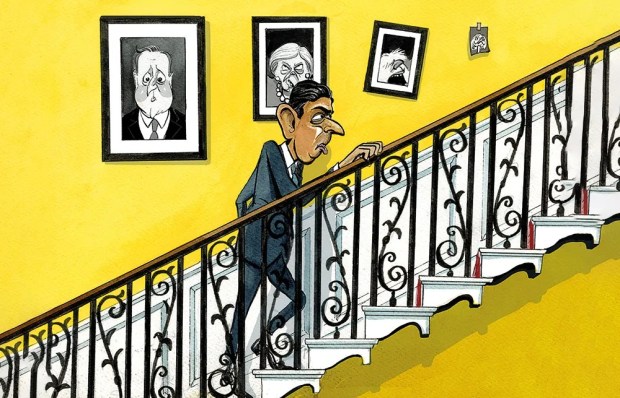‘All my life,’ Elton John told the Twittersphere last Friday afternoon, ‘I’ve tried to use music to bring people together. Yet it saddens me to see how misinformation is now being used to divide our world. I’ve decided to no longer use Twitter, given their recent change in policy which will allow misinformation to flourish unchecked.’
The first things to grab your attention about this utterance are its strangely stilted syntax and grim grammar. That ‘yet’ is an attempt to cover a leap of a non-sequitur. ‘I’ve decided to no longer use Twitter’ feels like an auto-translation from a tongue where subject and object come the other way around, and verbs flit about like birds. I did wonder if Elton had tasked ChatGPT with coming up with this statement – he is famous for delegating his lyric writing, after all – but it would’ve done a better job.
When you’ve successfully parsed these three sentences you’re left with another impression. Putting Elton the music to one side for a moment, one of the most entertaining things about Elton the persona is knowing that the dressing up, the fun and laughter and ‘bringing people together’ will probably, at any moment and for the smallest reason, instantly dissolve in a sudden, turn-on-a-sixpence eruption of camp temper. This propensity was immortalised in the 1997 documentary Elton John: Tantrums And Tiaras. Fans of Elton losing his rag, of whom I am one, will be familiar with a number of other magnificent incidents, helpfully all on YouTube.
The anodyne pomposity of his Twitter statement is a serious disappointment in comparison. And lofty moral disapproval – from Elton John! – that’s new!
Over what exactly? It seems Elton is cheesed off by rival rocket man Elon Musk’s terrifying plan to make Twitter kind of how it used to be until about 2018.
I’m still struggling to process the revelation that Elton John’s music was apparently always something to do with reliable information sourcing. ‘Saturday Night’s Alright For Fact-Checking’ doesn’t have the same ring. How about ‘The Bitch Is Back (citation needed)’? Or ‘I’m Still Standing! This claim is disputed’.
Is it not enough for people just to like your tunes? Apparently not
I never had Elton down as one of pop’s great thinkers. His music is a triumph of pure talent, the catnip of his tunes and his rich, beautiful voice transcending his significant shortcomings. After all, he is a short, tubby, balding, funny-looking gay bloke called Reg from Pinner who became a major star across America. He’s such a part of the furniture that we forget how strange and wonderful that is. Perhaps he has too.
Elton isn’t the only pop star getting irate lately. Geoff Barrow of 90’s trip-hoppers Portishead reported Australian women’s rights advocate Katherine Deves to the Twitter authorities for ‘transphobia’. When Deves replied that she’d been a fan of the band, Barrows fired back: ‘It’s quite obvious you never understood the message in our music’.
Hang on. There was a message in the music of Portishead? Beyond ‘it doesn’t actually matter if you can’t really sing’? I’ve just checked to make sure and I’m not hearing any social or political concerns at all.
Then there was M People, who were ‘livid’ about Liz Truss using ‘Moving On Up’ to emerge on stage at the Tory party conference. The apparent sanctity of this cheesy anthem, sullied by the filth of conservatism, came as a surprise to all of us.
We seem to have more and more pop entertainers who imagine that they possess some moral, even political, purpose and significance. Very few can lay any claim to even an attempt at that, and fewer still to a successful attempt.
Is it not enough for people just to like your tunes? Apparently not. The actual functions of breezy pop culture – to soothe, distract and uplift you, to provide joy – have been discredited, leaving pop stars of even the most frothy kind scrabbling for some deeper meaning in their work and lives.
We see this also in the leaden attempts at significance in formerly fun franchises such as Marvel comics and James Bond films. Light things can just be light, and there is nothing wrong with that. They are an essential leavening agent of our cultural intake.
As things stand now, we are often being served up a dessert as if it was a main course. A trifle is a marvellous thing on its own terms, but to fulfil its function it needs to follow something more substantial. It is not healthy to pretend that a diet of hundreds and thousands, custard and Dream Topping is, by itself, nutritious.
It is fine to be fun. When Elton has calmed down – it usually takes about five minutes – I hope he remembers that.
The post Why is Elton John so pompous? appeared first on The Spectator.
Got something to add? Join the discussion and comment below.
Get 10 issues for just $10
Subscribe to The Spectator Australia today for the next 10 magazine issues, plus full online access, for just $10.



















Comments
Don't miss out
Join the conversation with other Spectator Australia readers. Subscribe to leave a comment.
SUBSCRIBEAlready a subscriber? Log in